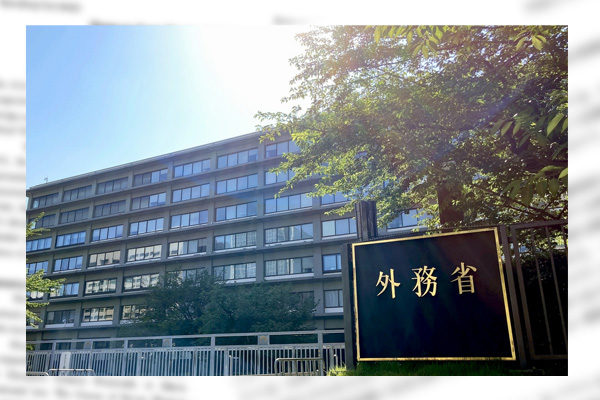On September 18, a Japanese elementary schoolchild was stabbed to death by a Chinese thug in Shenzhen, China. We cannot help but be angered at the Chinese government that has implemented anti-Japan education as a policy to create an atmosphere in which Chinese people are allowed to do whatever they want against Japanese, and at the Japanese government that has repeatedly apologized without refuting the Chinese policy.
Anti-Japan education to justify Communist Party dictatorship
Behind the incident is the anti-Japan sentiment or, more specifically, the anti-Japan revenge sentiment that has been spreading among Chinese people. The sentiment is not a reflection of historical facts, but a product created artificially by the Chinese Communist Party to justify its totalitarian rule during the Deng Xiaoping era.
If the memories of the war period had given rise to the anti-Japanese sentiment among Chinese people, the sentiment should have been the strongest just after the war and should have gradually declined over time. During the Mao Zedong era, however, anti-Japan sentiment did not emerge in China. According to Shi Ping, a naturalized Japanese critic who was attending a university in Beijing during the era, a student from Nanjing who lived with him in a dormitory knew nothing about the so-called Nanjing Massacre by the Japanese army. At the time, China’s enemies were capitalists and landowners all over the world based on the Marxist theory of class. Even Japanese workers and peasants were subjected to Chinese people’s solidarity.
After the normalization of relations between Japan and the People’s Republic of China in 1972, the Chinese government did not bring up historical issues diplomatically until the 1980s. When Deng Xiaoping abandoned the Marxist theory of class by bringing up the socialist market economy theory and accepted large-scale economic assistance from Japan, he brought up anti-Japan nationalism claiming that Japan should atone for the evil deeds it committed against China.
The Nanjing Massacre Memorial Hall was built in 1985 during the Deng Xiaoping era. Beijing made no protest against Japanese prime ministers’ visits to Yasukuni Shrine dedicated to the war dead during six years from the publication of Class A war criminals’ enshrinement at the shrine in 1979 to July 1985 when the Asahi Shimbun and other Japanese newspapers instigated China’s anti-Japan diplomacy. During the period, then Prime Ministers Masayoshi Ohira, Zenko Suzuki, and Yasuhiro Nakasone visited the shrine a total of 21 times.
After the Tiananmen Square massacre in 1989, the Chinese Communist Party launched a major national policy of so-called “patriotic education” to take advantage of its past fight against Japanese militarism to justify its dictatorship. In August 1994, the CCP announced guidelines for the implementation of patriotic education, which stipulated that anti-Japan political propaganda should be carried out not only in the field of school education but also in society as a whole, including movies, television, monuments, and museums.
Japan should rebut at the government level
In August 1998 after Deng Xiaoping’s death, then CCP leader Jiang Zemin instructed ambassadors and other diplomatic officials that China must continue to speak out against Japan on the Taiwan issue, and emphasize the historical issue from beginning to end, and forever.
However, the Japanese government has repeatedly apologized to China and implemented large-scale economic assistance, while refraining from refuting or protesting against China’s “history diplomacy” that amounts to interference in Japan’s internal affairs. On the Nanjing Incident, the website of Japan’s Foreign Ministry only states that “it cannot be denied that… the killing of noncombatants, looting and other acts occurred,” while not refuting China’s false claim that hundreds of thousands of people were massacred in the incident.
The Japan Institute for National Fundamentals already discussed this issue in detail in its policy proposal in November 2021, calling for strengthening international public relations on historical awareness. Now is the time for the public and private sectors of Japan to make a counterargument against China that steps deep into historical awareness.
Tsutomu Nishioka is a senior fellow and a Planning Committee member at the Japan Institute for National Fundamentals and a visiting professor at Reitaku University. He covers South and North Koreas.


